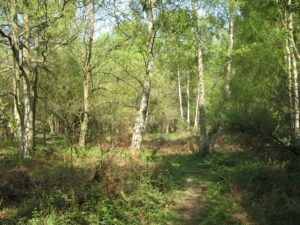Support us from £3/month
We deal with almost 1000 cases a year assisting communities, groups and individuals in protecting their local spaces and paths in all parts of England and Wales. Can you help us by joining as a member?
We are concerned that plans to simplify the law of common land could put commons at risk of hostile development. The Department for Environment, Food and Rural Affairs has published its plans to cut red tape for environmental regulations. These include extending the range of works on common land to be exempted from the consent of the Secretary of State for Environment, Food and Rural Affairs.
At present it is necessary to obtain the environment secretary’s consent, in addition to any planning and other consents, for works on common land such as fences, buildings, surfaced tracks and car-parks, to name a few. The current exemptions apply in a few, limited cases relating to nature conservation or protecting the land from vehicles.
Says our general secretary, Kate Ashbrook: ‘The requirement for the Secretary of State’s consent is a vital safeguard for our unique, historic, common land; it makes it clear to all that commons are special and must be protected. They have survived largely unspoilt since medieval times and should not be mucked about with.
‘We see no scope for extending the exemptions without putting commons at risk of damage and development. The Open Spaces Society is consulted by law on all applications for works on common land, and we object to those which are against the public interest.
‘An applicant for works must follow a robust process, which ensures that he or she appreciates that commons are special and must be preserved. We would not wish to see this protection weakened in any way,’ says Kate.
‘On the other hand, we are pleased that Defra proposes to implement fully part 1 of the Commons Act 2006, which enables the commons registration authorities to update the registers, and the public to apply to register, and thereby protect, land which was omitted from the registers in the 1960s.
‘Implementation of these provisions is long overdue—it is over five years since the act was passed, yet part 1 has only been introduced so far in seven English registration authority areas (‘pioneer areas’). With the British Horse Society we are running a project in Lancashire and Blackburn with Darwen borough, two of the pioneer areas, to rescue thousands of acres of lost common land, and we look forward to the Commons Act, and thus the registration opportunity, being extended throughout England,’ Kate concludes.

